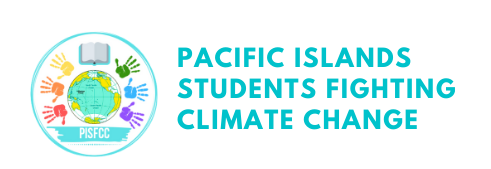Judges of the ICJ To Hear 100 Submissions In The #ClimateICJAO Oral Proceedings
The International Court of Justice (ICJ), will soon host a pivotal moment in the global fight against climate change as over 100 states and international organisations gather for the #ClimateICJAO oral hearings from 2-13 December, 2024.
This historic event marks the end of Phase 2 of the proceedings, closing all submissions to the ICJ, both written and oral.
The upcoming Oral Hearing will see an unprecedented number of submissions, making it the largest climate case yet brought before the Court. The advisory opinion proceedings will seek to clarify the legal obligations of states to address and mitigate the impacts of climate change, with particular attention on the rights of vulnerable and small island nations.
Set against a backdrop of extreme weather events - ranging from devastating storms across Asia, Europe, and North America, to 15 consecutive months of record-breaking global temperatures, the hearings come at a time when the impacts of climate change are more evident than ever.
Small island states, which contribute less than 0.02% of global greenhouse gas emissions, are bearing the brunt of these changes, facing threats like rising sea levels, extreme weather, and environmental degradation.
The Attorney Generals of Kiribati, Papua New Guinea, Vanuatu, Tuvalu, and Fiji have issued a joint statement in support of the proceedings, emphasising the critical need for strong arguments to counter harmful narratives from high-polluting nations that seek to downplay the crisis.
Arnold Kiel Loughman, Attorney General of Vanuatu: "Vanuatu's initiative to bring climate change before the ICJ was born out of necessity. For too long, our region has endured the brunt of climate impacts while contributing the least to the crisis. The collective voice of Pacific Island states in the upcoming proceedings is a critical step in safeguarding our people and preserving our cultures. The effects of climate change are not just disasters; they are wake-up calls to recognize the link between climate change and human rights violations in order to drive states to act on behalf of the most vulnerable."
Graham Leung, Attorney General of Fiji: "The ICJ advisory opinion offers a unique opportunity to clarify what international law requires of States to address and mitigate the impacts of climate change. For many of us, this is not simply a legal issue—it is a matter of survival. Fiji is committed to working with our Pacific friends at the ICJ hearing in December to support our joint efforts for climate change justice."
Pauline Beiatau, Attorney General of Kiribati: "Kiribati has long been on the frontline of the climate crisis, and the time to act is now. With rising sea temperatures, storm surges, high winds, erosion, and drought, our islands' continued existence is already threatened. The actions we take today will define the future for generations to come. We cannot afford to wait."
Pila Kole Niningi, Attorney General of Papua New Guinea: "PNG stands in solidarity with our Pacific neighbours as we present a unified fight against the climate crisis. Climate action in the Pacific is about survival—of our environment, peoples, and cultures. Addressing climate change demands sustained, long-term commitment. This historic case before the ICJ is an opportunity to provide a global compass, guiding nations toward real action, accountability, and justice."
Laingane Italeli Talia, Attorney General of Tuvalu: "Tuvalu's very existence is under threat, along with other island states, and collective action is our strongest tool against the climate crisis. The ICJ advisory opinion could become a defining moment in international law—setting new precedents for climate justice, human rights protection, and holding polluters accountable for their contributions to the climate crisis."
This is the first time that the issue of climate change & and human rights are being addressed at the level of the International Court of Justice. By providing legal clarity, the ICJ advisory opinion could serve as a new global North Star’ guiding us toward a safer future.
As we approach this critical juncture, the world will be watching. The voices of small island states must resonate powerfully to drive meaningful, lasting change in the global fight against climate change.
-Ends-
